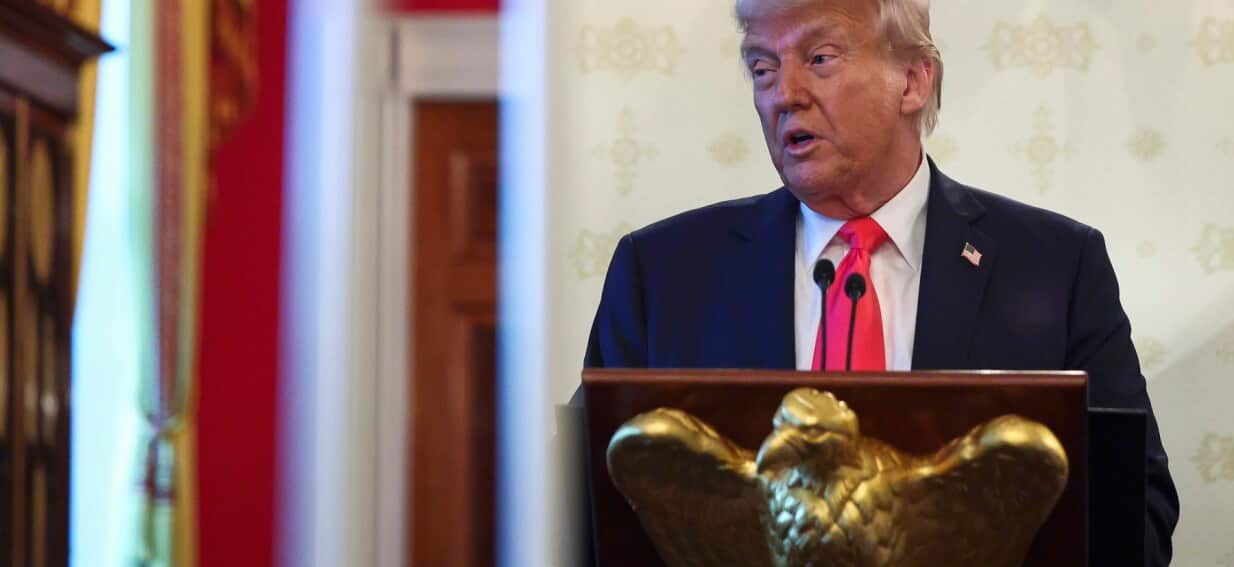Share this @internewscast.com

The United States Supreme Court has handed President Donald Trump a major victory in a case involving birthright citizenship by curbing the ability of judges to impede his policies nationwide, changing the power balance between the federal judiciary and presidents.
The 6-3 Friday ruling, authored by conservative Justice Amy Coney Barrett, did not let Trump’s directive restricting birthright citizenship go into effect immediately, directing lower courts that blocked it to reconsider the scope of their orders. The ruling did not address the legality of the policy, part of Trump’s hardline approach toward immigration.
The Republican president lauded the decision as a “monumental victory for the constitution, the separation of powers and the rule of law”.
He mentioned that his administration is now able to advance various policies, including the executive order on birthright citizenship, that have been “unjustly blocked at a national level.”
The court granted the administration’s request to narrow the scope of three so-called “universal” injunctions issued by federal judges in Maryland, Massachusetts and Washington state that halted enforcement of his directive nationwide while litigation challenging the policy plays out. The court’s conservative justices were in the majority, and its liberal members dissented.
The ruling specified that Trump’s executive order cannot take effect until 30 days after Friday’s ruling. The ruling thus raises the prospect of Trump’s order eventually applying in some parts of the country.
Federal judges have taken steps, including issuing numerous nationwide orders impeding Trump’s aggressive use of executive action to advance his agenda. The three judges in the birthright citizenship litigation found that Trump’s order likely violates citizenship language in the US Constitution’s 14th Amendment.
Upon returning to office, Trump signed an executive order instructing federal agencies to deny citizenship to children born in the United States unless they have at least one parent who is either an American citizen or a lawful permanent resident, commonly referred to as a “green card” holder.
Warning against an “imperial judiciary,” Barrett wrote, “No one disputes that the Executive has a duty to follow the law. But the Judiciary does not have unbridled authority to enforce this obligation – in fact, sometimes the law prohibits the Judiciary from doing so.”
Liberal Justice Sonia Sotomayor called the ruling a “travesty for the rule of law” as she read a summary of her dissent from the bench.
In her written dissent, joined by the court’s two other liberal justices, Sotomayor criticized the court’s majority for ignoring whether Trump’s executive order is constitutional.
More than 150,000 newborns would be denied citizenship annually under Trump’s directive, according to the plaintiffs who challenged it, including the Democratic attorneys general of 22 states as well as immigrant rights advocates and pregnant immigrants.
The ruling was issued on the final day of decisions on cases argued before the Supreme Court during its nine-month term that began in October.
The court also issued rulings on Friday backing a Texas law regarding online pornography, letting parents opt children out of classes when storybooks with LGBT characters are read, endorsing the Federal Communications Commission’s funding mechanism for expanded phone and broadband internet access and preserving Obamacare’s provision on health insurers covering preventive care.











